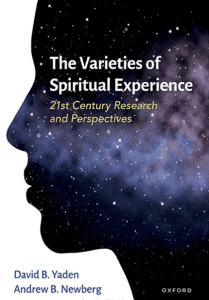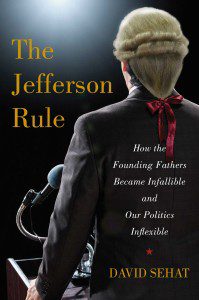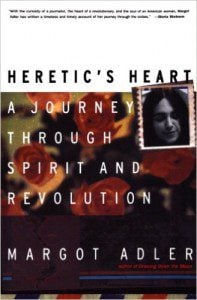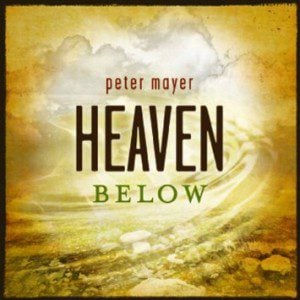What is Unitarian Universalism?
What do UUs believe?
Those are questions that most Unitarian Universalists are asked at some point. To respond to such questions, it can be helpful to develop what some people call an “Elevator Speech”: a short response that can be delivered in the length of an average elevator ride, approximately 30 seconds to two minutes.
If you have a favorite UU Elevator Speech, I would be interested to read it in the comments section of this post. But for those still in the process of figuring out what this whole Unitarian Universalist thing is about, there are a few resources available, including a pamphlet on “To the Point: 15 Unitarian Universalist Elevator Speeches” and a similar packet of wallet-sized cards. The following are a few of my favorite Elevator Speeches drawn from those sources. As you read them, I invite you to be attentive to which words and phrases resonate with you most strongly:
- Laila Ibrahim: “It’s a blessing you were born. It matters what you do with your life. What you know about god is a piece of the truth. You do not have to do it alone.”
- Victoria Mitchell: “Unitarian Universalism is . . . composed of diverse communities operating without a common belief about God, the universe, and death. Instead of creed, we share a spirit and vision of radical inclusivity, individual agency, and social justice. It is a safe space to stand out, stand up, and change your mind, particularly during life’s transitions. We embrace personal discovery and growth through learning, engagement, and service. Our only doctrine is love.”
- Rev. James Vila Blake: “Love is the spirit of this church, and service its law. This is our great covenant: To dwell together in peace, To seek the truth in love, And to help one another.”
- Rev. Barbara Merritt: “Unitarian Universalists have said for centuries that there is room in our religion for all seekers. Skeptics and poets and scientists are welcome here, as are nonconformists and shy and uncertain folk. We believe that restlessness and doubts are a sign of grace, that the love of truth is the holiest of gifts.”
- Rev. Kathleen McTigue: “If you hunger for spirituality without dogma, if you long to put yourself to work healing a suffering world, if you want a faith community that helps you deepen into life’s questions even when there are no final answers, Unitarian Universalism may be your religious home.”
Clearly there are many powerful potential responses to the question, “What is Unitarian Universalism?” I personally continue to experiment with different ways of answering that question, but one short summary from my perspective is the following:
Unitarian Universalism seeks to create a community, where you can be spiritual and religious. We draw wisdom from all the world’s religious traditions, from modern science, and from our own direct experience. We affirm the inherent worth and dignity of each individual and, at our best, we freely choose to work together to build a better world for all people. We don’t pretend to have all the answers, but we are on a journey together of living the questions.
Part of the problem, of course, is that far too many people are not familiar enough with Unitarian Universalism to consider that it could be significant and meaningful for them to ask questions about it.
Along these lines, there was an ad campaign a few years ago with the theme of “You may be a Unitarian Universalist and not know it.” From one angle, there are all the old jokes such as “You might be a UU if you have trouble singing hymns because you’re always reading ahead to see if you agree with the words.” Or “You might be a UU if you prefer to think of the Ten Commandments as the Ten Suggestions.”
More seriously, you might be a UU and not know it if you long to be part of a spiritual community in which you have the freedom to explore Atheism, Agnosticism, Art, Buddhism, Christianity, Humanism, Judaism, Paganism, Science, and many other related paths all within the same congregation.
You might be a UU and not know it if you trust your own firsthand experience — what you know for yourself to be true — as much or more than what traditional authorities tell you is true.
You might be a UU if you believe in the “inherent worth and dignity of every person,” if you believe in working for social, environmental, and economic justice, and that “We need not think alike to love alike.”
Last weekend, my wife Magin and I were walking around downtown in the city where we live, and we passed a car covered in bumper stickers about open-mindedness and diversity, along with pleas for reason and tolerance. Whenever I see cars like that, I sometimes think that I should start carrying around cards to stick under the car’s windshield wipers that say, “Your bumper stickers lead me to think that you may be interested in the Unitarian Universalist Congregation of Frederick.”
Admittedly, Unitarian Universalism is not for everyone (nothing is), but I regularly hear people say, “I wish I had known about Unitarian Universalism years ago.” Likewise, when reading through the Seven Principles and Six Sources of Unitarian Universalism, many people, including myself, have had the experience of thinking, “Yes! That’s pretty much what I think.”
But as inspiring as the Principles and Sources are for many people, if you’ve been around UUism for a while, you may had heard this criticism about the Principles and Sources from a former UUA President, “they describe a process for approaching the religious depths but they testify to no intimate acquaintance with the depths themselves.” In other words, the Principles and Sources persuade many of us to risk walking through the doors of a UU congregation for the first time, and they point us toward how we can be together amidst all our theological and philosophical diversity, but there is still much work to be done individually and collectively in doing the hard work of the free and responsible search for truth and meaning as well as of working together for peace and justice.
I should also say that the Principles and Sources are not meant to be unchanging for all time. They were written in the 1980s and approved by delegates at UU General Assemblies. And although they continue to serve us well in many ways, I have every reason to think that someday they will be revised and replaced by a future set of words more relevant to a future generation.
Similarly, if you look at the cover of our gray hymnal, you’ll see that the title is “Singing the Living Tradition.” UUism has long been known as “The Living Tradition.” Ours is a movement that while seeks to be ever-evolving with changing insights, revelations, and cultural shifts while also retaining the best wisdom of the past. But if we have a bias, it is toward the future. As a lyric contained in that hymnal proclaims, Unitarian Universalism is “A freedom that reveres the past, But trusts the dawning future more.”
Now, so far I’ve been focusing on the open-ended question of “What is Unitarian Universalism?” which allows you the freedom to respond in many different possible ways about the parts of Unitarian Universalism that are most significant to you. But what about harder questions like, “Doesn’t Unitarian Universalism mean getting to believe anything you want?” The right answer, which is shocking to many people, is no. To take a step back, the biggest problem with responding to that question is the whole way the question is framed. People that ask, “What do UUs believe” — even those that ask that question earnestly and in good faith — are making what philosophers call a “Category Error.”
Often people whose starting point is asking about what Unitarian Universalists believe have had significant exposure to an orthodox religious tradition such as Roman Catholicism in which believing a set a doctrines is central. If you attend a Roman Catholic mass, it will include a recitation of the fourth-century Nicene Creed, which begins, “I believe in one God, the Father almighty, maker of heaven and earth, of all things visible and invisible….” Or, to become a Muslim, you must recite the Shahada, a creed, which is the first of the Five Pillars of Islam: “There is no god but God, Muhammad is the messenger of God.” Moreover, the word creed itself comes from the Latin word credo, meaning “I believe.”
In contrast, Unitarian Universalism is a non-creedal tradition. Religion scholars would classify us as an orthopraxy, not an orthodoxy. What matters is what you do, how we treat our fellow human beings and how we treat this one planet. We believe in “Deeds, not creeds.” But even though UUism is a non-creedal tradition, it’s still not the case that, “Being Unitarian Universalism means being able to believe whatever you want.” The old joke is that, “What do you get when you cross an evangelist with a Unitarian Universalist? Someone who walks around knocking on doors for no particular reason.”
But for a more constructive response than that old canard, I like to follow the lead of Rebecca Ann Parker, who since 1990 has been the president of Starr King School for the Ministry in Berkeley, California (one of the three main seminaries for UUism along with Meadville-Lombard in Chicago and Harvard University). She makes four vital points about “some theological options that are outside the pale” even of the broadly inclusive Unitarian Universalism.
We have room for many different understandings God as well as for many people who don’t believe in God, but you can’t be a Unitarian Universalist and “hold the view that God is the all-powerful determiner of everything that happens.” Many of our Unitarian and Universalist forebears defined themselves against such views of absolute divine sovereignty and predestination. Such views conflict with the cherished UU values such as of human freedom and individual responsibility.
Second, you can believe many different perspectives about the afterlife or that there is no afterlife and find a comfortable place for yourself within UUism, but you cannot believe that there will be an eternal “separation of the saved from the damned in which the good are rewarded with eternal bliss and the damned are punished with eternal suffering.” Such a view would violate our First Principle, which proclaims “The inherent worth and dignity of every person.” Even more problematically, it would violate the entire Universalist half of our heritage, which holds that whatever we mean by salvation “is universal” not limited to some elite group. Along these lines, a workshop at the recent UU General Assembly sought to explore how to take that original Universalist rejection of the doctrine of hell in the 19th-century and reclaim it for the 21st-century as a universal proclamation of hope for all people in this world. They called the workshop, “Loving the Hell Out of the World!”
Third, many individual UUs are drawn to one or more of our Six Sources for various personal reasons. And all manner of mixing the Six Sources is fine within the Big Tent of UUism, but you can’t be a Unitarian Universalist and believe in “one religion that encompasses the exclusive, final truth for all times and places.” We’re a living tradition, not one that believes we just need to hold fast to the absolute truth that was already discovered millennia ago. Historically there were hard-fought battles in our tradition particularly with some individuals and groups who wanted to keep the Christian tradition central, privileged, and elevated, but the decisive shift was eventually toward a robust religious pluralism that explicitly includes the Jewish and Christian tradition (see the Fourth Source: “Jewish and Christian teachings which call us to respond to God’s love by loving our neighbors as ourselves”), but only as one among many equally legitimate sources for truth and meaning.
Fourth, you can believe many different views about this world and even about the next world, but “you cannot hold the view that salvation is to be found solely beyond this world.” There is a long-standing tradition in Unitarian Universalism in valuing this world and this life — and that here and now really matters.
Notice that none of those four points is a creed. In each case, the starting point is the wide, expansive number of positions that one can comfortably hold within Unitarian Universalism. But there are positions and ways of relating that are incompatible with the core values of our liberal religious tradition, which historically has emphasized freedom, reason, and tolerance.
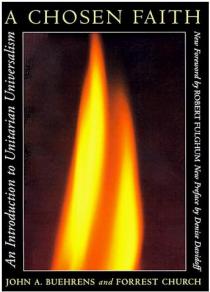 To share a personal memory, the first time I ever remember learning about Unitarian Universalism was as a sophomore in college. I was in the library of the campus chapel, and there was a whole shelf reserved for each of the different campus religious groups. The Unitarian Universalism group’s shelf had about twenty copies of the book A Chosen Faith, which is an introduction to Unitarian Universalism by two long time ministers of our congregation in New York City.
To share a personal memory, the first time I ever remember learning about Unitarian Universalism was as a sophomore in college. I was in the library of the campus chapel, and there was a whole shelf reserved for each of the different campus religious groups. The Unitarian Universalism group’s shelf had about twenty copies of the book A Chosen Faith, which is an introduction to Unitarian Universalism by two long time ministers of our congregation in New York City.
As a cradle Southern Baptist, I could relate to the concept of a chosen faith because there was so much emphasis in my childhood church on the importance of an individual choosing to follow Jesus. In parallel, individual choice is central to UUism. To quote from that book A Chosen Faith, “Unitarian Universalists are neither a chosen people nor a people whose choices are made for them by theological authorities — ancient or otherwise. We are a people who chose,” which is related to the ancient Greek word for heretic — which simply means “to choose.” To be a heretic is simply to be one who chooses for him or herself as opposed to letting an external authority choose for you.
And we chose for ourselves this unwieldy denominational name of Unitarian Universalism because in 1960 the Unitarians and the Universalists came together separately in Boston and voted democratically for consolidation. The delegates present on that occasion said that the “emotional climax” came as the two groups joined after the vote for worship. As they collectively streamed into the sanctuary as a new uniting body, they sang the processional hymn, “As Tranquil Streams.” They sang this hymn over and over until everyone was joined in the same room.
But as with so many moments in history, the vote could have been otherwise. In this case, years of work and hope resulted in inclusivity and unity. Our Sixth Principles holds up the lofty goal of “world community with peace, liberty, and justice for all,” but history shows us how difficult it was even for two liberal denominations, with much in common, to merge. But we have to start somewhere.
In closing, I invite you to read the lyrics of that historic hymn. Which words and phrases still hold meaning and inspiration for your or your spiritual community today?
As tranquil streams that meet and merge and flow as one to seek the sea,
Our kindred hearts and minds unite to build a church that shall be free.
Free from the bonds that bind the mind to narrow thought and lifeless creed;
Free from a social code that fails to serve the cause of human need:
A freedom that reveres the past, but trusts the dawning future more;
And bids the soul, in search of truth, adventure boldly and explore.
Prophetic church, the future waits your liberating ministry;
Go forward in the power of love, proclaim the truth that makes us free.
The Rev. Dr. Carl Gregg is a trained spiritual director, a D.Min. graduate of San Francisco Theological Seminary, and the minister of the Unitarian Universalist Congregation of Frederick, Maryland. Follow him on Facebook (facebook.com/carlgregg) and Twitter (@carlgregg).
Learn more about Unitarian Universalism:
http://www.uua.org/beliefs/principles



